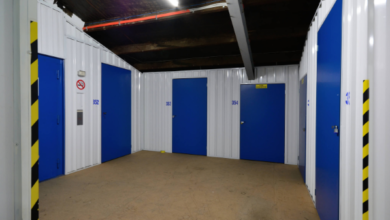Navigating Small Business CGT Concessions: A Guide for Entrepreneurs

Starting and growing a small business cgt concessions. As you work hard to build your enterprise, understanding the intricacies of tax implications becomes crucial. One significant aspect is the Capital Gains Tax (CGT) and the concessions available for small businesses. In this article, we’ll delve into the world of Small Business CGT Concessions, exploring what they are, who is eligible, and how you can make the most of them to secure the financial future of your business.
Understanding CGT and its Impact on Small Businesses
Capital Gains Tax is a tax on the profit made from the sale of an asset, such as property or shares. For small business owners, CGT is a consideration when selling a business or business assets. The Australian Taxation Office (ATO) defines a small business for CGT purposes as one with an aggregated turnover of less than $2 million or net assets of less than $6 million.
Eligibility Criteria for Small Business CGT Concessions
To benefit from CGT concessions, a small business must meet certain eligibility criteria. These criteria include:
- Business Size: The business must be a small business entity, which typically means having an annual turnover of less than $2 million.
- Active Asset Test: At least 80% of the business’s total assets must be active assets, which are those used in the course of running the business. This ensures that the concessions are targeted at businesses actively involved in productive activities.
- Ownership Test: The business owner must satisfy specific ownership requirements. Generally, the owner needs to have owned the asset for at least 15 years.
- Net Asset Value Test: The net assets of the business must be less than $6 million.
Types of Small Business CGT Concessions
There are several types of CGT concessions available for small businesses:
- 15-Year Exemption: If you’re 55 or older and are selling a business asset you’ve owned for at least 15 years, you may be eligible for a full exemption from CGT.
- 50% Active Asset Reduction: This concession allows you to reduce the capital gain on the sale of an active asset by 50%.
- Retirement Exemption: If you’re under 55 and selling a business asset, you can contribute up to $500,000 of the capital gain into your superannuation fund, exempt from CGT.
- Small Business Rollover: This concession allows you to defer all or part of a capital gain for two years or more if you’re replacing an active asset.
Strategies for Maximizing CGT Concessions
- Timing of Sale: Carefully consider the timing of selling your business or business assets. Planning the sale in a way that aligns with the ownership and active asset requirements can significantly impact the amount of CGT payable.
- Structuring Ownership: The way your business is structured can influence CGT outcomes. Seek professional advice to determine the most tax-effective structure for your business.
- Maximizing the Active Asset Test: Ensure that at least 80% of your total assets are active assets. Consider reinvesting in the business to maintain and increase the proportion of active assets.
- Utilizing the Small Business Rollover: If you’re planning to reinvest the proceeds from the sale into a new business asset, the small business rollover can be a valuable tool for deferring CGT.
Seeking Professional Advice
Navigating the complexities of Small Business CGT Concessions can be challenging, and seeking professional advice is crucial. Engaging with a tax advisor or accountant can help you understand the specific implications for your business, ensure eligibility, and optimize your tax position.
Conclusion: A Path to Financial Security
In conclusion, Small Business CGT Concessions can be a valuable asset for entrepreneurs looking to sell their businesses or business assets. Understanding the eligibility criteria and types of concessions available is key to making informed decisions that can have a significant impact on your financial future. As you embark on your small business journey, leverage these concessions strategically, and consider consulting with tax professionals to ensure you make the most of these opportunities. By doing so, you can pave the way for a smoother transition, maximize returns, and secure a more prosperous future for your business endeavors.





